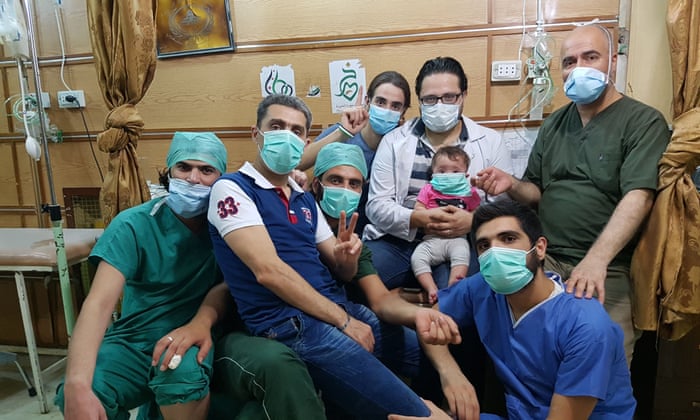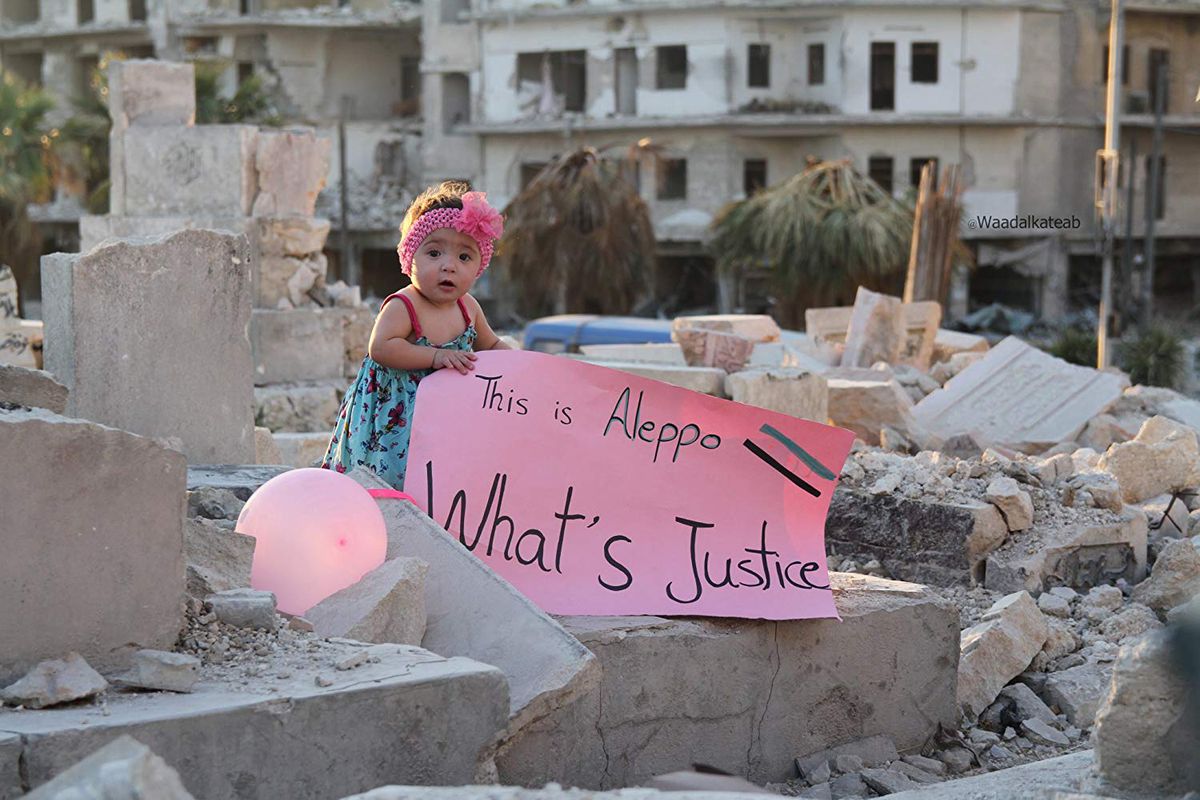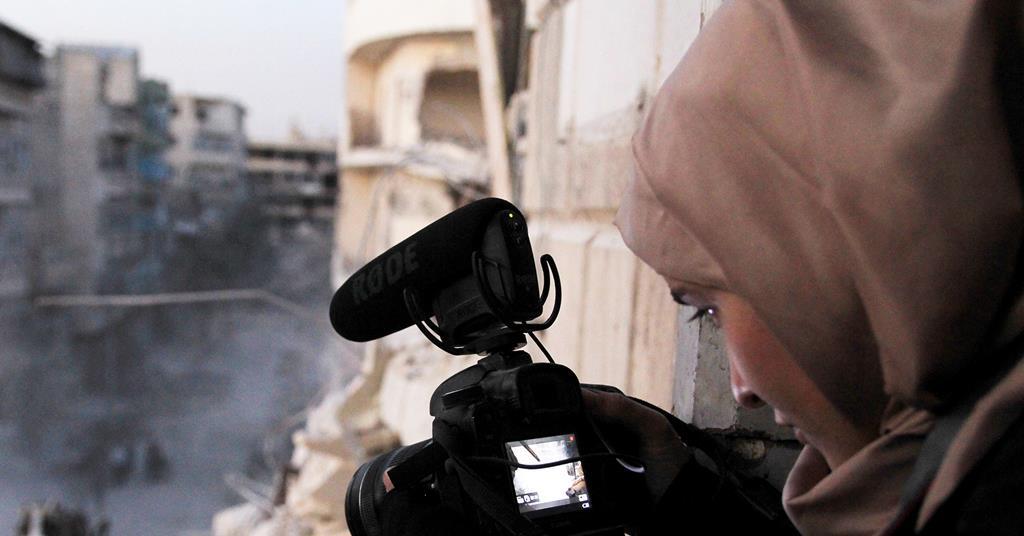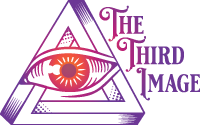For Sama



It is not uncommon for a parent to ask themselves, at one moment or another, whether bringing a child into this world could be defined as an act of cruelty. The question carries even more weight when that parent lives in a war zone. This is the dilemma at the centre of Waad Al-Kateab’s film, in her mind, and in her heart. In her feature documentary For Sama, she attempts to justify to her daughter the need for her existence, whilst showing to the world what is going on in war-torn, almost razed, Aleppo, Syria.
Al-Kateab started filming in 2011 at the time of the Syrian uprising when she was 18 years old. She continued to keep an observational video diary as war broke out, to record what was happening around her and her family, particularly what her husband, a doctor at the local hospital, was witnessing. Injured, unconscious, and dead bodies coming in faster than anyone can tend to them. This is not war through the rhetoric of politicians, or through the editorial of a news channel counting viewer ratings. None of that is shown here (why should it be – we’re all fed enough of that already). This is the horror of war at ground level, the day-to-day struggle of not knowing what is happening, what will happen next, whether you or your loved ones will make it through the day, and above all, the bewilderment at where the rest of the world is.
Whilst Al-Kateab and her family were still in Syria, she was managing to get some of the footage smuggled out of the country. It was first broadcast in the UK on Channel 4 News, who over the course of several weeks presented news stories made up of what they were receiving. Eventually from endless hours of material (a reminder: 5 years worth), For Sama was edited together into a self-contained film. A subtle voice-over reveals Al-Kateab’s thoughts and feelings, questions and concerns, over her daughter’s future well being. Rather than explanatory, the words are poetic in a way only a maternal love knows.
As war escalates and there’s less and less of the city left standing, the big decision she and her husband have to make is whether to flee Aleppo and seek refuge elsewhere. With what’s happening, he as a doctor, she as a documentarian, the answer doesn’t come easy.
I had the privilege of meeting Al-Kateab. We shared a hug. It wasn’t me hugging her for the awful things she had lived through. It was I who needed her support. The strength, the warmth and the powerful but unaggressive will this filmmaker has is what good cinema and particularly good journalism and good documentary filmmaking needs. I needed some of that strength, that unique energy, my having just been confronted by a humility I had never been subjected to before.
As a mere viewer, and not someone who’s actually experienced these events, it is ridiculous to state but still remains true, that there’s imagery in the film I will never be able to eliminate from my mind. This is not easy viewing. But this is the world we live in. This is our world and who we are. This is what war looks like. To ignore it is ignorance. And this is the world into which we bring our children. If we want change of any kind, then perhaps the question “Why?” Is more important than we’ve allowed ourselves to contemplate.
